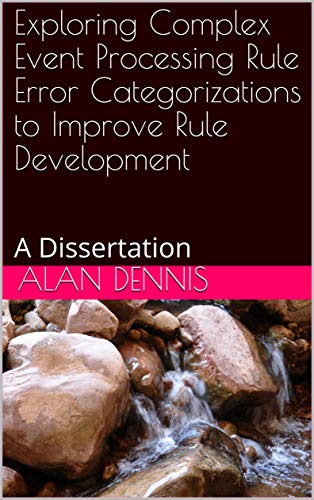Despite the well-established effectiveness of Complex Event Processing (CEP) in flagging complex events for real-time decision making, the rules which define event-driven behavior can be challenging and error-prone. This dissertation examines the problem that creating rules for CEP systems is increasingly difficult and error-prone because the categorization of errors in CEP rules needed by Big Data Analytics practitioners to improve CEP rule development has not been established. A sample of 10 CEP rule authoring practitioners from various organizations with profiles on LinkedIn was recruited. Participants were interviewed assessing their experiences with errors in rules governing CEP. The key findings of the study were that most errors in rules governing CEP systems were related to a lack of knowledge on the part of the rule author. While more complex issues (such as temporal windows and cross-stream correlation) played a part, participants mentioned gaps in fundamental knowledge more frequently. Specifically, nine themes were identified related to errors in rules governing CEP systems. The major themes which emerged during analysis are lack of knowledge, the nature of CEP, the nature of rules, event streams, planning and design, human and team errors, complexity, and lack of testing and code reviews.

